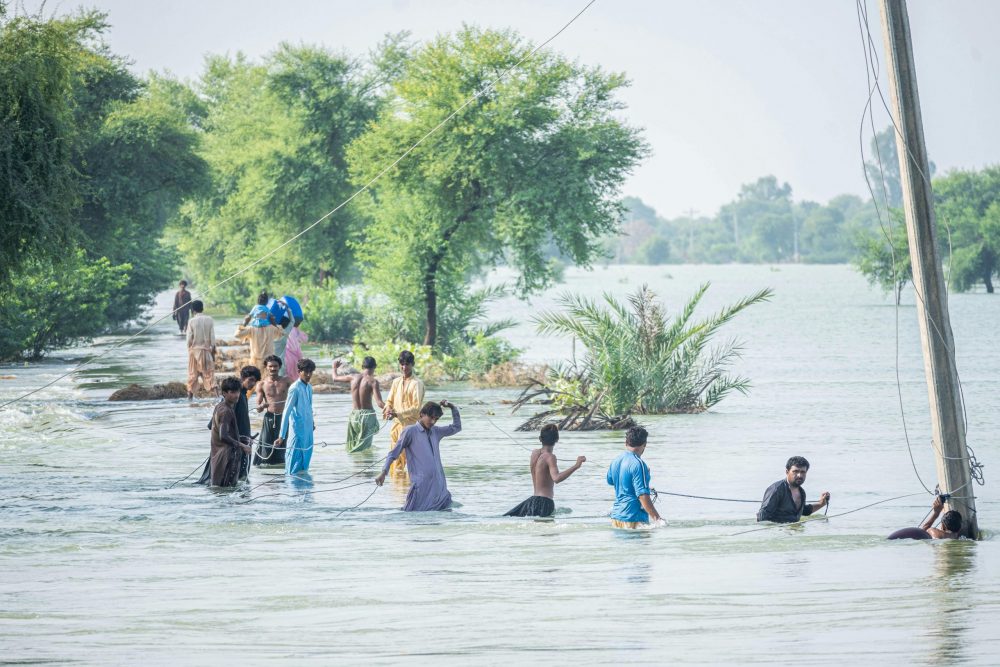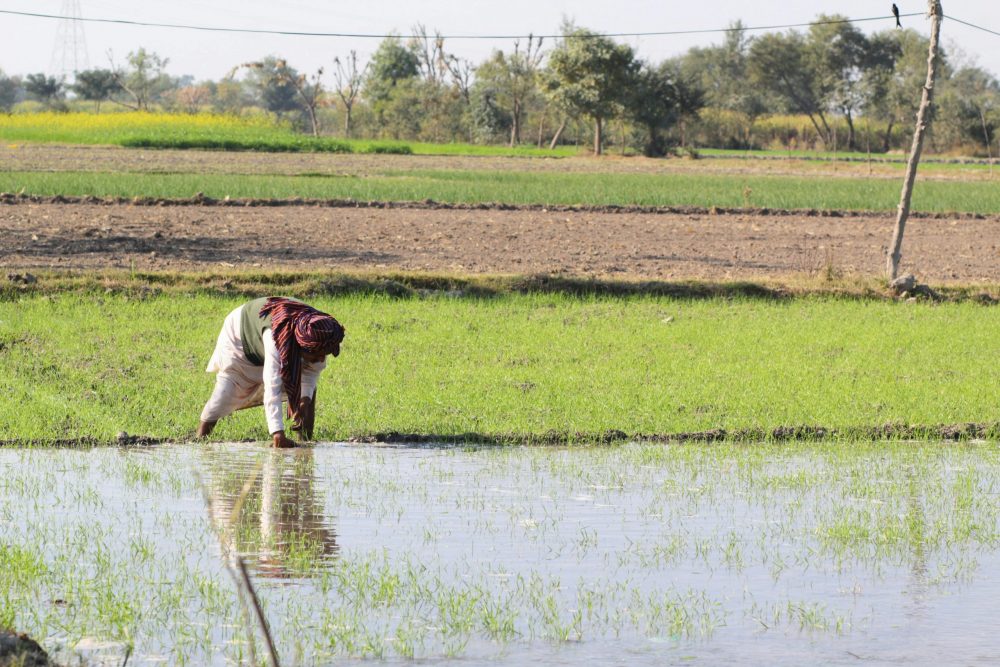With Pakistan’s general elections looming overhead, it’s high time for political parties to publish their manifestos and inform the population of their economic objectives, and policy intentions for if and when, they win the elections. A manifesto also demonstrates the party’s roadmap for achieving the principles, values, and ideology that it prioritises. Thus, it is a key tool for the population to make informed, democratic decisions.
Pakistan’s political parties generally do not provide a detailed overview of the feasibility, timeline and implementation process of the policy promises that they make in their manifestos. In fact, less than 20% of Pakistan’s key economic and policy issues have been addressed in the political manifestos of the top three parties, and they usually lack financially probable, discussion-based recommendations, or effective consultations, during their formulation process. For example, Pakistan People’s Party has announced its 10-point manifesto for the 2023 elections, in which it promises free healthcare services for all citizens, construction of three million houses for the homeless, and green energy parks in every district, amongst other things. However, this manifesto does not offer any practical plans to achieve these ambitious goals, or consider Pakistan’s precarious financial circumstances as the country’s external debt reached $124.3 billion in June 2023.
As witnessed in the past elections, manifestos are often disregarded soon after the elections take place, as majority of the parties view manifestos as mere formalities that most of the voting population will not pay attention to – which makes them inconsequential and neglecting execution. Nevertheless, it is pertinent that civilians are made aware of all the published political manifestos so that they can make informed decisions that reflect their needs from the upcoming government. Moreover, a manifesto serves as a record of a party’s promises to the public – and an opportunity to hold the party accountable for delivering on the promises which it has made.
Therefore, political manifestos should include quantitative, evidence-based policy targets that adhere to a regulatory framework and a set timeline. They must offer viable solutions for addressing Pakistan’s most pressing challenges, which range from economic development, climate change, human rights and security, and democratic civilian empowerment.
Thus, this blog highlights some of the most pertinent issues impacting Pakistan today, which require immediate focus in political manifestos.
Economic Policy and Human Development:
Pakistan’s rising foreign debt is a subject of growing concern, and in order to ensure sustainable economic growth, the state must prioritise long-term strategic economic policy, over short-term relief.
The country has long-crossed the 58% mark for its debt-to-GDP ratio, which had been set by the Fiscal Responsibility and Debt Limitation Act. SBP reported that the country’s total debt and liabilities reach up to 91.1% of the GDP in FY2023. This paints a grim picture for the country’s financial future if Pakistan does not break out of its debt trap and empower the domestic economy to reform the local business sector and improve both efficiency and productivity.
Pakistan can attract foreign business inflows if the country provides a stable and conducive business environment that adheres to an established regulatory framework. By reforming its standard of operations for business processes, the country can foster market competition and job growth. Moreover, Pakistan must also resolve the constraints that impact private sector activity, such as protectionist trade policies, lack of investment, surging inflation and corruption. Possible interventions that can be adopted but political parties have yet to focus on include incentivizing exports, implementation of market-friendly business regulations, and investment into small and medium-sized businesses.
In FY22, Pakistan was spending only 1.7% and 1.4% of its GDP on education and health respectively. This is one of the lowest public spending in these sectors, within South Asia. Thus, political parties need to emphasize how the state can utilise its 242 million population by investing in its human capital, via human development programmes, facilitating quality-improvement of its education sector, and enhancing research and development. Moreover, Pakistan’s female labour force participation rate stands at a mere 21%, which indicates that the country is losing out the economic productivity of women’s participation in the workforce. Thus, the country must mobilise development initiatives to enhance women’s access to education, skill development and thus, improve their role in the economy.
The Role of 18th Amendment:
In recent years, devolution has stalled and there is a lack of accountability in performance or resource allocation at both provincial and federal levels, which has hindered good governance and fiscal responsibility and effective administration by the state. Thus, it is essential for political parties to clarify their stance on the future of the 18th Amendment since its present-day set-up does not reflect its original promises of provincial autonomy.
A common criticism against the 18th Amendment’s enactment is over the lack of efficient coordination in provincial service delivery and administration. This has also resulted in a fragmented tax base and hindered tax policy and collection. Pakistan’s poor ranking in human development (161st out of 192), education (37% of school-age children are out of schools), and gender disparity (ranking 142nd out of 146 countries), all showcase the country’s inability to address key issues of the population.
These issues can be resolved by building the capacity of the provincial governments to raise their own resources, and mandate greater transparency in all policy and monetary processes. Local governments need to be empowered by ensuring that devolution cascades down to the district or “tehsil” level. Instead of simply assigning the devolved functions to the relevant ministries on paper, the allotment should be accompanied by financial, legislative, and administrative autonomy. Moreover, the policymaking process should be monitored at every stage to ensure effective governance.
Thus, political parties should outline how they will ensure that basic service delivery will be decentralised to the grass roots level, in their manifestos. As well as how they plan to combat regional inequalities and hold local government accountable to the public’s interests.
Climate Change Crisis:
There is no doubt of Pakistan’s vulnerability to climate change, as the country faces acute water shortage, extremely hazardous levels of air pollution, high temperatures and devastating floods. Increased urbanisation, lack of urban planning, and management all contribute to exacerbate Pakistan’s climate change vulnerability, as there is an absence of climate-resilience settlement planning or sustainable development initiatives. This had a catastrophic impact during the 2022 floods, in which almost 8 million people were displaced from their homes.
Thus, it is essential for political parties to recognise the severe risk of Pakistan’s climate change crisis and propose measures to mitigate these threats. These policy measures should be constructed on science-based regulations, following the best global, sustainable practices. Effective climate change mitigation requires disrupting the existing socioeconomic structure of the country, to introduce financial, institutional, social, and regulatory reforms that will alleviate the climate crisis. Moreover, climate change inequalities must be addressed through social and economic packages to ease the disproportionate impact of climate change on the vulnerable communities such as women, marginalised groups and the lower-income population. There must also be a transparent allocation of the necessary funds and measurable targets set in place to assess the policy impact on the environment.
In conclusion, political manifestos should clearly illustrate why and how the specific policy targets were selected, which institutions were involved in raising these issues, how the policy will be enacted, what are the costs, potential barriers, and solutions. These should be presented to the public so that they make educated voting decisions for Pakistan’s future.
This blog is based on a seminar organised by CPPG, CDPR, and IGC on “Elections 2024: Identifying Key Policy Issues.”





